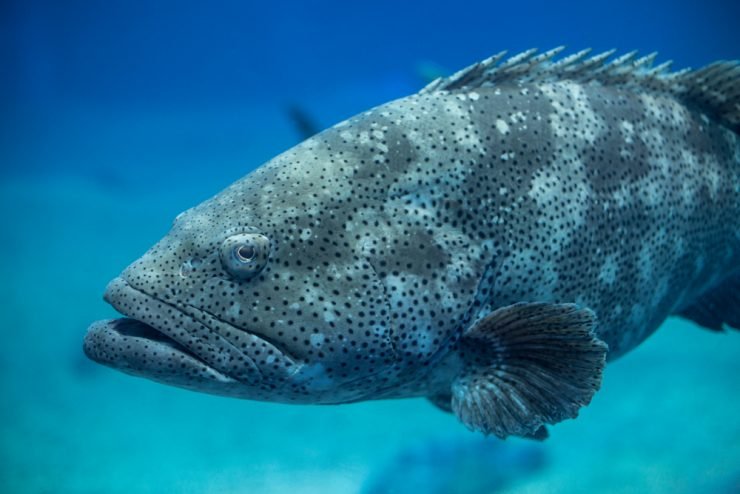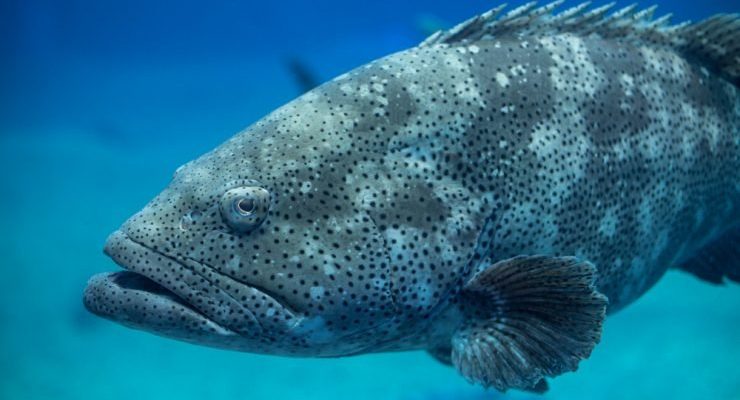
So, are groupers endangered? The short answer is yes, but it’s a bit more complicated than that. Like many creatures in our oceans, groupers are caught between the pressures of overfishing, habitat loss, and climate change. These threats pose serious risks not just to the fish themselves, but to the entire marine ecosystem. Let’s break down the situation and the ongoing conservation updates more thoroughly.
Understanding Grouper Species
Groupers belong to the family Epinephelidae and come in various species, all with their unique traits. You might have heard of the Nassau grouper, the Goliath grouper, or the Red grouper. Each of these plays an important role in their habitats, helping to maintain the balance of the marine ecosystem.
For instance, the Goliath grouper is one of the largest and most iconic species, reaching lengths of up to 8 feet. They act as natural predators, helping control populations of smaller fish. However, their impressive size comes with vulnerabilities, making them particularly susceptible to fishing pressures. On the other hand, the Nassau grouper has been listed as endangered due to overfishing and habitat degradation.
Groupers are typically found in warm, shallow waters and prefer rocky or coral reefs. Unfortunately, their reliance on these habitats makes them especially vulnerable to the impacts of climate change and human activity. As the oceans warm and coral reefs face bleaching, groupers have fewer safe spaces to thrive.
The Threat of Overfishing
One of the biggest challenges facing groupers today is overfishing. When too many fish are caught, it disrupts the balance of the ecosystem, leading to declining populations. Fishing practices such as blast fishing, where explosives are used to catch fish, can be particularly damaging. This not only kills groupers but also destroys their habitats.
You might be wondering how overfishing directly affects groupers. Well, as their numbers dwindle, it reduces genetic diversity, making it harder for populations to recover. Essentially, if fish can’t reproduce at a sustainable rate, they face a risk of extinction.
Efforts to regulate fishing practices are underway in many regions. Some places have introduced catch limits or seasonal bans to give grouper populations a chance to rebound. However, illegal fishing continues to be a problem. Enforcement of fishing regulations can often be weak, leading to continued threats for these amazing fish.
Habitat Loss and Its Impact
Alongside overfishing, habitat loss is a major threat to grouper populations. Coral reefs, mangroves, and seagrass beds are essential for their survival and are being eroded by coastal development, pollution, and climate change. Imagine a home being slowly taken away—this is what’s happening to groupers as their habitats disappear.
Coral reefs, for instance, are incredibly sensitive to changes in temperature and water quality. When corals bleach or die, they can no longer support the vibrant marine life, including groupers. Without these habitats, groupers have nowhere to hide from predators or breeds.
Conservation efforts to protect these vital habitats include establishing marine protected areas (MPAs) and restoring damaged ecosystems. MPAs help ensure that groupers can thrive without the constant pressures of fishing and habitat degradation. Actively working to restore coral reefs can also provide a new lease on life for these fish.
Conservation Initiatives for Groupers
So, what’s being done to help groupers? Various conservation organizations and governments are stepping up their efforts to protect these fish. For instance, in the Caribbean, several nations have implemented fishing regulations that target grouper fishing specifically.
Additionally, breeding programs are being developed to help with population recovery. The goal is to raise juvenile groupers in controlled environments and then release them into the wild. This not only helps with numbers but also promotes genetic diversity, which is crucial for long-term survival.
The Goliath grouper, under serious threat, has seen some success with protective measures in Florida, including seasonal closed fisheries. These initiatives allow the population to rebound while providing a model for other regions facing similar challenges.
You might be surprised to learn that many of these conservation efforts also involve local communities. Engaging fishermen and residents in conservation can create a sense of ownership and pride, leading to more sustainable fishing practices.
The Role of Education and Advocacy
Education is another essential piece of the puzzle. Raising awareness about the importance of groupers and their habitats can spark interest and drive action. When people understand the role these fish play in the ecosystem, they’re more likely to support conservation efforts.
Advocacy groups are working tirelessly to spread knowledge about groupers and the impacts of overfishing and habitat destruction. They often coordinate community events, workshops, and campaigns to inform the public. For example, programs that teach sustainable fishing methods can empower local fishermen to protect their resources while still making a living.
Social media campaigns can also help raise awareness. By sharing stories, images, and information about groupers, advocates can reach a broader audience and inspire them to get involved. The more people care about these fish, the greater chance there is for meaningful conservation efforts.
What You Can Do to Help
Now that you’re aware of the issues facing groupers, you might wonder how you can contribute to their conservation. Here are a few simple ways to make a difference:
- Support Sustainable Seafood: Choose fish that come from sustainable sources when shopping or dining out. Look for certifications like the Marine Stewardship Council (MSC) label.
- Get Involved: Join local conservation groups or volunteer for beach clean-ups and habitat restoration projects.
- Spread the Word: Talk to friends and family about the importance of protecting groupers and their habitats. Share posts on social media to raise awareness.
- Advocate for Policies: Support legislation and policies that protect marine environments and promote sustainable fishing practices.
By taking these steps, you can play a part in ensuring that groupers, along with many other marine species, have a chance to thrive in our oceans.
In summary, the question of whether groupers are endangered is complicated but clear—yes, many species are at risk due to overfishing and habitat loss. However, conservation efforts are ongoing, supported by dedicated organizations, local communities, and individuals like you. By understanding the challenges and actively participating in solutions, we can work together to protect these magnificent fish and their essential roles in marine ecosystems. Remember, every little bit helps, and when it comes to conservation, your voice and actions matter. Let’s keep fighting for our underwater friends—after all, they’re relying on us!

